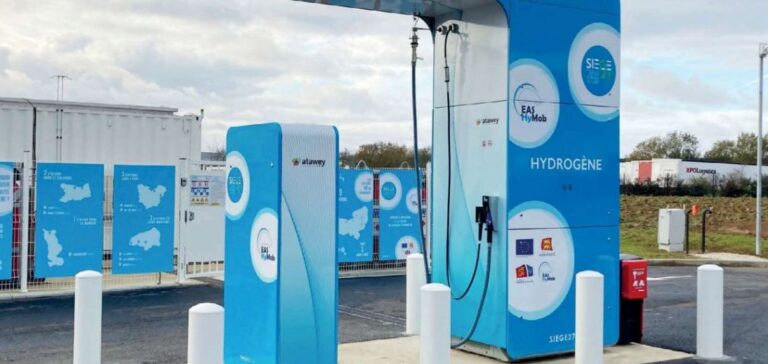Occitanie is betting on hydrogen mobility to accelerate its energy transition and adopt non-carbon emitting energies. After setting up a €150 million Hydrogen Plan in 2019, the Occitanie region has turned to the European Investment Bank for its new project.
They have signed a €40 million loan agreement to set up the Corridor H2 project in Europe. This aid is part of the EIB’s priority action to reduce the effects of climate change. Occitanie’s Agences de Développement Économique and Agences Régionale Énergie Climat also took part in the project.
Creating hydrogen mobility in France
The project, which will cost 110 million euros, will develop 8hydrogen charging stations by 2023 on the North/South axis from the Mediterranean to the North Sea, and on secondary roads in Occitanie, notably the A61 and A20. These will fuel numerous hydrogen-powered vehicles by distributing 225 tonnes of hydrogen per year. This will save 2.6 million liters of diesel a year. These stations will be powered by two green hydrogen production units in the Occitanie region.

Promoting the use of hydrogen-powered vehicles
The region will also build infrastructure to accommodate the firsthydrogen-powered trucks. 20 hydrogen fuel cell refrigerated units will also be deployed on the road, as will 40 refrigerated trailers. To these will be added 40 hydrogen-powered trucks and 15 hydrogen-powered coaches. The Corridor project therefore aims to power heavy-duty vehicles with hydrogen to reduce their environmental impact.
To successfully develop these infrastructures and vehicles, the Occitanie region has also applied to the European call for projects, MIE Blending. Several million euros in subsidies could therefore be forthcoming to complete the project. These would be paid back to hydrogen production companies and road hauliers.
This project is in line with France’s national policy, announced in September 2020, to develop low-carbon hydrogen. This makes the Occitanie region a leader in hydrogen production in France.






















